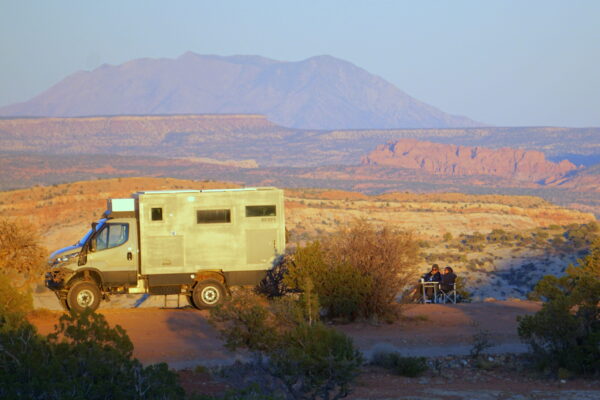As an accountant whose work is mostly remote, I don’t have the same connection to the land that most others have here. Most people here either directly rely on the public lands for their livelihoods while others do so indirectly by providing services to those who work the land.
But I still care. On the one hand, I’m a recreationist myself — and on the other, I care deeply for my friends whose livelihoods depend on the millions of acres of public lands around us. I remember President Clinton’s blindside proclamation in 1996, and it’s still hard for me to ignore the injustice as I drive pretty much the entire stretch of Highway 12.
In 1996 President Clinton paid lip service to existing rights on the Grand Staircase-Escalante National Monument. But then in the shrewdest move of all, he stripped those right holders of access to exercise their rights. It wasn’t per se the monument designation that was so unjust to locals. It was, at the behest of environmental groups, its resource management plan — which was designed not only to conserve the landscape, but also to be as punitive to local users as possible.
Twenty-seven years later, we find ourselves fighting in a repeat of the same game. We have four new proposed alternative resource management plans — the least restrictive of which is not an improvement of access, but just the status quo. The other alternatives only slide to the more-restrictive side.
And it’s all about restricting access to rights — which is the game special interest groups play when they can’t actually strip away user rights. They will do all they can to remove access to rights on land they hope will become a de facto wilderness area.
This removal of access is one of the greatest takings going on in America today.
Meanwhile, people across America — from the citizens of Arkansas to the politicians and pundits in Washington DC, the mainstream media, and even our conservative-minded allies along the Wasatch Front — haven’t even got a foggy clue about the taking of public lands. If these people had any idea of what is happening here, they would be outraged!
The State of Utah can continue to fight to preserve the rights of its citizens through litigation as it has been doing. But ultimately, there will need to be bipartisan legislation to improve environmental regulations and to either appeal or amend the Antiquities Act so these laws don’t undermine the rights of citizens.
Legislation, though, requires the help of the public.
Can you imagine Utah getting support for repealing the Antiquities Act from even the conservative lawmakers of Kentucky or Florida? No way! Because they don’t have that much public land and don’t know what it’s like to be abused by an absentee landlord who only cares about appeasing lobbyists. And I’m sure those lawmakers’ constituents aren’t writing in about it.
Americans’ ignorance on this topic has grown from three problems: first, only a handful of states, including Utah, are majority-owned by the federal government, so other states don’t have a problem. Second, people don’t understand the nature of the rights attached to these lands (remember that grazers were often the very first American citizens to use that land, whether that usage earned them outright land ownership or not). And third, most people have been duped by environmentalists into believing that they, the public, are the beneficiaries of this taking!
It is true that most Americans see public lands as a giant playground. Meaning, they are recreationists like me. But that is only one of the uses of public lands. They need to see and respect the other uses too.
If recreationists think that removing cows from public lands is good for them, they need to understand that the environmental organizations aren’t in favor of recreation either. The enviros are wooing you today, but they don’t want to share public lands with you either. Cowboys never seemed to mind sharing public lands with the public — but the enviros, who came later, just want it for themselves.
The fact that Americans don’t understand the importance of access will be a very difficult problem to overcome. They don’t understand the issues because the only stories they hear from our deserts are those written by environmental groups in Salt Lake City.
But Americans need to hear from you. You live here. You actually use the land. You need to tell your story.
Fortunately, social media and other online media has made this easier than ever before. Americans need people like you to speak up. Tell stories about how you use and care for local lands. Talk about what it’s like to live here.
If local land users have any interest in preserving access as a right for everybody, it is now their duty to educate the public. Don’t let the enviros speak for you: their job is to win control for themselves by showing that locals are unworthy to use the land. Now is the time for you to tell America the truth.
– by AJ Martel
Feature image caption: International campers with their van/tank enjoying the sunset near Spencer Flat (Escalante) the evening of October 30, 2023.
AJ Martel – Escalante
AJ Martel is the youth coordinator at The Byway, but he is involved in most everything. He and his family live in Escalante, and they love it here! AJ has found Utah’s small towns quite inviting and under-defended, which is why he’s so involved with the paper. What AJ loves to do most, though, is serve his community. That is clear through everything he writes and does for Escalante, Utah.

